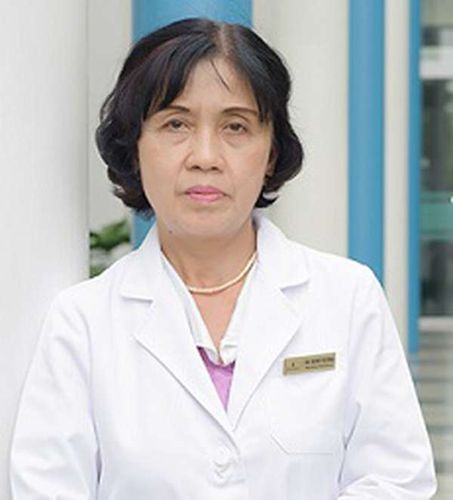Nội dung bạn đang tìm kiếm không có phiên bản tiếng Việt.
Vui lòng chọn tiếp tục để xem nội dung tiếng Anh hoặc đi đến trang chủ Tiếng Việt.
Rất xin lỗi về sự bất tiện này.

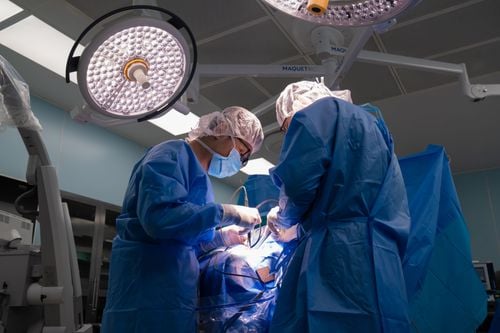
Our surgeons, with over 20 years of experience in peripheral neurosurgery, have received comprehensive and extensive training from neurological centers worldwide such as in France, Canada, South Korea, etc. Recently, we have implemented various techniques in spine and cranial surgery, delivering favorable outcomes for patients.
Some challenging specialized techniques performed at the hospital include:
- Surgery for hemifacial spasm with intraoperative neurophysiological monitoring
- Brain tumor resection with intraoperative neurophysiological monitoring
- Epilepsy surgery
- Minimally invasive spinal surgery with intraoperative neurophysiological monitoring
- Combined vascular intervention and surgery for cerebral vascular malformations
Intraoperative neurophysiological monitoring is an advanced and specialized technique that enhances surgical safety, minimizing the risks of neurological damage leading to paralysis (a concern for all patients undergoing spine and cranial surgeries). This high-level technique is mastered by very few healthcare facilities in Vietnam for neurological surgeries.
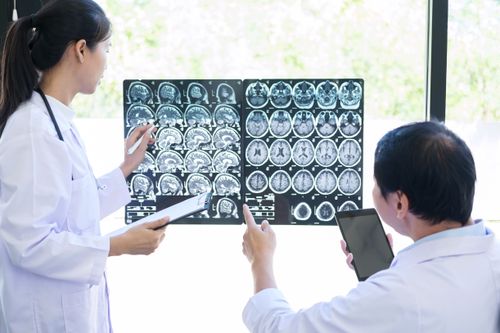
We have a team of highly skilled internal neurologists, trained in Canada, South Korea, France, etc., effectively treating conditions such as headaches, particularly chronic headache types, epilepsy, Parkinson's disease, movement disorders, peripheral nervous system diseases, autoimmune neurological disorders, encephalitis, and stroke in various stages. Our neurologists collaborate closely with surgeons in monitoring and treating complex, multidisciplinary cases, resulting in positive outcomes and patient satisfaction.
We maintain regular professional cooperation and consultation with professors from leading medical centers such as the Cleveland Clinic (USA), University Hospital Montreal (Canada), and National University Hospital (South Korea) to achieve optimal treatment outcomes for patients.
In addition to clinical care, our neurology teams, both internal and surgical, are dedicated to ongoing scientific research, publishing articles in reputable international medical journals, contributing to enhancing the reputation of Vinmec and Vietnamese healthcare in general.
Vinmec currently applies regional anesthesia techniques to achieve the best pain relief for patients. Effective pain management has significantly aided patient recovery and early mobilization post-surgery.
Specifically for spine surgeries, we utilize Erector Spinae Plane (ESP) block techniques and maintain catheters to control continuous pain for up to 72 hours. Based on actual pain surveys post-surgery, the average Visual Analog Scale (VAS) pain score for major surgeries at Vinmec is around 4 at 24 hours and 2 at 48 hours.
The Oncology Center, led by Professor Fernando Martinez, a veteran expert in oncology with extensive experience in top European hospitals. All cases of brain and spinal tumors are discussed in the Multidisciplinary Tumor Board (MTB).
Here, experts deliberate on specific cases, applying the latest guidelines from NCCN and NICE, planning pre- and post-surgical strategies.
Vinmec's Oncology Center provides comprehensive services including chemotherapy, radiation therapy, with high-quality expertise and services, becoming a trusted choice for many cancer patients over the years.
The Neurology Department specializes in diagnosing and treating:
- Primary headaches such as migraine, tension-type headache, cluster headache, and headaches due to overuse of painkillers.
- Chronic pain disorders related to central sensitization mechanisms such as fibromyalgia.
- Neck and lower back pain, herniated discs in the cervical and lumbar spine, vestibular disorders, sleep disorders.
- Diagnosis and treatment of acute stroke, including the use of thrombolytic drugs, intracranial clot aspiration, stenting of cerebral vessels, combined with early functional recovery exercises for patients.
- Diagnosis and treatment of Parkinson's disease, differential diagnosis of Parkinsonian syndromes.
- Diagnosis of cognitive decline disorders, mild cognitive impairment.
- Diagnosis and treatment of autoimmune neurological disorders such as myasthenia gravis, myelitis, optic neuritis, autoimmune encephalitis.
- Diagnosis and treatment of peripheral nervous system disorders such as Guillain-Barre syndrome, chronic inflammatory demyelinating polyneuropathy, nerve compression syndromes (e.g., carpal tunnel syndrome).
- Diagnosis and treatment of peripheral facial nerve palsy (Bell's palsy), herpes zoster.

Diagnostic and Treatment Methods Currently Applied in Neurology:
- Precise diagnostic tests: blood screening, urine screening, immunological tests, tumor markers, genetic testing.
- Electroencephalography (EEG), video EEG, electromyography, nerve conduction studies, evoked potentials (visual, auditory).
- Imaging diagnostics: computed tomography (CT scan), magnetic resonance imaging (MRI), positron emission tomography (PET scan), single-photon emission computed tomography (SPECT scan).
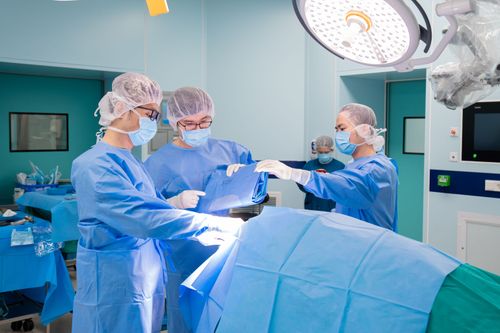
The Department of Neurosurgery, also known as the Department of Neurosurgery, manages neurological disorders through surgical methods, including endoscopic surgery, neurosurgery, endovascular interventions, reconstructive surgery, and transplants. The Department of Neurosurgery conducts surgeries for brain tumors, spinal cord tumors, spinal cord tumors, brain and spinal trauma; vascular surgery in facial spasms; vascular surgery in nerve pain.
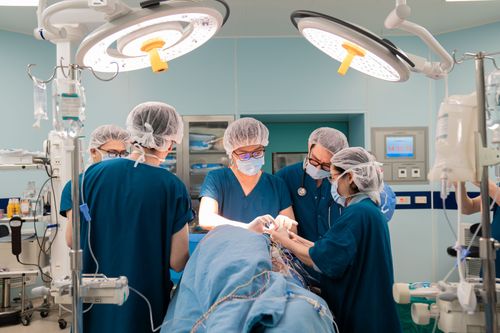
- Precise diagnostic tests: blood screening, urine screening, immunological tests, tumor markers, genetic testing.
- Electroencephalography (EEG), video EEG, electromyography, nerve conduction studies, evoked potentials (visual, auditory).
- Imaging diagnostics: computed tomography (CT scan), magnetic resonance imaging (MRI), positron emission tomography (PET scan), single-photon emission computed tomography (SPECT scan).
The Department of Neurosurgery, also known as the Department of Neurosurgery, manages neurological disorders through surgical methods, including endoscopic surgery, neurosurgery, endovascular interventions, reconstructive surgery, and transplants. The Department of Neurosurgery conducts surgeries for brain tumors, spinal cord tumors, spinal cord tumors, brain and spinal trauma; vascular surgery in facial spasms; vascular surgery in nerve pain.
-
MSc, DoctorDepartment of internal neurology
-
Ph.D, MD, DoctorDepartment of internal neurology
-
MSc,Department of internal neurology
-
MSc, MD,Neurological surgery
-
Specialist Level 2 Doctor,Department of internal neurology
-
Ph.D, DoctorNeurological medicine
-
MSc, MD, DoctorNeurological medicine
-
Specialist Level 2 Doctor, DoctorNeurological medicine
-
Professor, Associate professor, Ph.D, MD, DoctorPediatrics department














